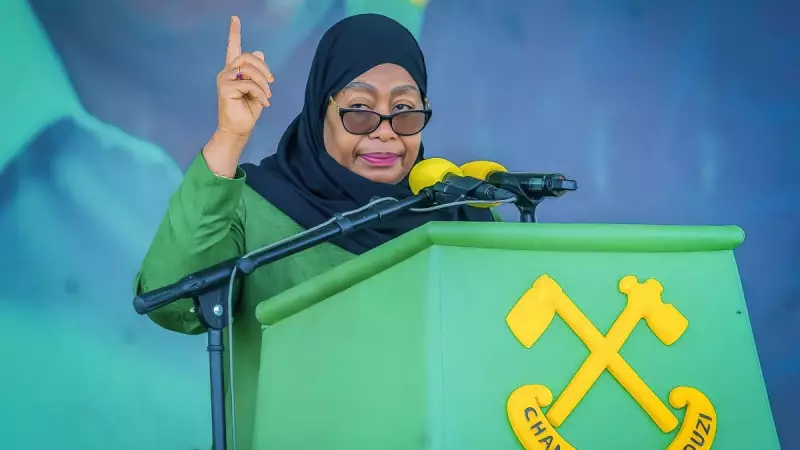
In a dramatic electoral showdown that captured international attention, Tanzania's President Samia Suluhu Hassan has secured a resounding second term with an astonishing 98 percent of votes cast. The National Electoral Commission announced the final tally, revealing the incumbent's landslide victory in an election marred by controversy and civil unrest.
Overwhelming Mandate Despite Political Tensions
The election results showcase President Hassan's formidable political strength, with the ruling Chama Cha Mapinduzi (CCM) party maintaining its decades-long dominance in Tanzanian politics. The overwhelming margin of victory underscores her administration's popular support despite facing significant challenges in the lead-up to the polls.
Protests and Opposition Boycott
The electoral process was not without its turmoil. Deadly protests erupted across several regions following allegations of opposition suppression and concerns about electoral integrity. Security forces clashed with demonstrators in what human rights organizations described as the most significant political violence Tanzania has witnessed in recent years.
Major opposition parties, including the prominent ACT-Wazalendo, opted to boycott the elections entirely, citing what they called "systematic exclusion" and "unfair playing conditions." This political standoff created a polarized atmosphere that threatened to undermine the credibility of the electoral process.
International Observers Weigh In
International election monitoring teams have expressed mixed reactions to the conduct of the polls. While some observer missions noted improvements in certain aspects of the electoral process, others raised concerns about the political environment leading up to election day.
The African Union observer mission acknowledged the peaceful voting on election day but highlighted the need for broader political inclusivity in future elections. Meanwhile, Western diplomats have called for transparent investigation into the protest-related casualties.
What This Means for Tanzania's Future
President Hassan's decisive victory positions her to continue the economic and social reforms initiated during her first term. Her administration has been credited with stabilizing Tanzania's economy and improving international relations, particularly with neighboring countries and global financial institutions.
However, the challenge of national reconciliation and addressing opposition grievances now looms large. Political analysts suggest that the government's approach to healing the nation's political divisions will be crucial for maintaining stability and attracting foreign investment.
The international community watches closely as Tanzania, East Africa's second-largest economy, navigates this critical juncture in its democratic journey. The coming weeks will reveal whether President Hassan's new term will be marked by increased political dialogue or continued polarization.





